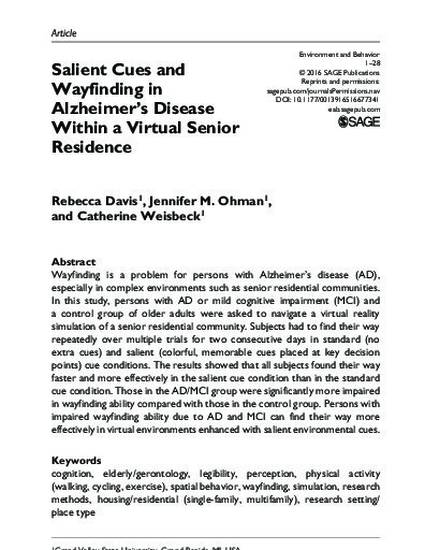
Article
Salient cues and wayfinding.pdf
Environment and Behavior
(2016)
Abstract
Wayfinding is a problem for persons with Alzheimer's disease (AD), especially in complex environments such as senior residential communities. In this study, persons with AD or mild cognitive impairment (MCI) and a control group of older adults were asked to navigate a virtual reality simulation of a senior residential community. Subjects had to find their way repeatedly over multiple trials for two consecutive days in standard (no extra cues) and salient (colorful, memorable cues placed at key decision points) cue conditions. The results showed that all subjects found their way faster and more effectively in the salient cue condition than in the standard cue condition. Those in the AD/MCI group were significantly more impaired in wayfinding ability compared with those in the control group. Persons with impaired wayfinding ability due to AD and MCI can find their way more effectively in virtual environments enhanced with salient environmental cues.
Disciplines
Publication Date
2016
DOI
doi: 10.1177/0013916516677341 https://www.ncbi.nlm.nih.gov/pubmed/29230067
Citation Information
Rebecca Davis. "Salient cues and wayfinding.pdf" Environment and Behavior (2016) Available at: http://works.bepress.com/rebecca-l-davis/9/
